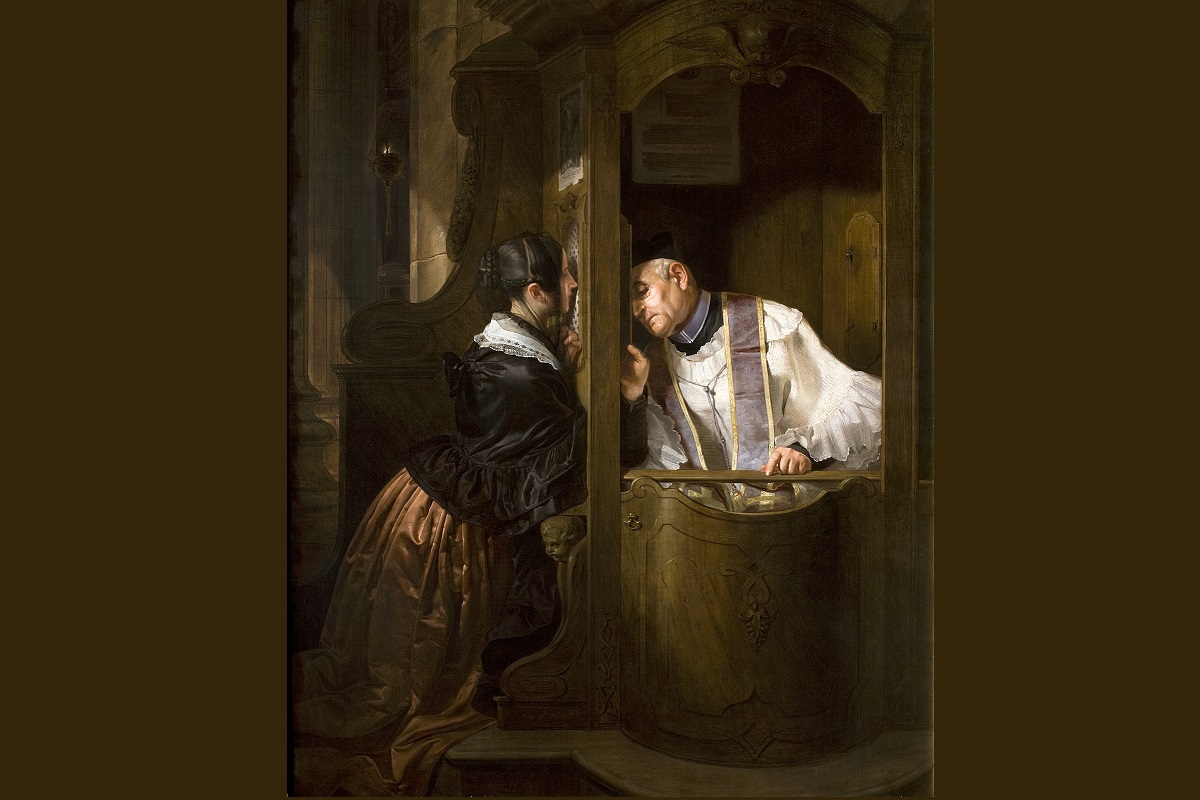Original image by Fondazione Cariplo on Wikimedia Commons, licensed under CC BY-SA 3.0
By Vir Christi
A concept that one often hears discussed in democratic countries around the world is “freedom”. It is a word so casually and so frequently used that many people treat its definition as a given. Often, if we walk up to someone on the street and ask them how they would define freedom, the answers are predictable. “The right to do whatever I want!” “The right to make my own choices!” “The right to live my life without fear of oppression!” Those are all samples of themes we might expect to hear in such an answer.
Jesus, by contrast, promises that we will set free, by following Him and believing in Him. But do we really understand what that freedom is?
Freedom and Free Will
If everyone is honest, when asked to define what freedom ideally looks like they would suggest a world where people have the maximum amount of room to decide or do whatever they would like. If you were to press them a little harder, those same people would concede to a vision of freedom that reads more akin to anarchy than Christ-centered freedom.
Our Lord said to His listeners during His ministry, “If you continue in My word you are My disciples; and you will know the truth, and the truth will make you free” (John 8:31-32). Here is our first clue as to what freedom is: it is coming to knowledge of the truth! But if we dig a little deeper, we remember the words of Jesus from later in John’s Gospel: “I am the Way, the Truth, and the Life” (John 14:6). Putting it all together, what this means is that if you act as the disciples of Christ, you come to know Him, and if you know Him, He will set you free! So the first principle of true freedom is that it is a gift, given by Our Lord and through Our Lord, and cannot be obtained any other way.
Aha, you might be thinking to yourself. If true freedom consists of living in Christ, then why do we even have free will in the first place? We have free will because true love cannot exist without it. But being given free will is not the same thing as finding true freedom. Free will is an action that is meant to be exercised towards the ultimate realization of freedom.
Finding Freedom in Christ
So if free will was given to us to be exercised towards freedom, and true freedom consists of living in Christ, how do we get to that point? In his letter to the Romans, St. Paul says to “put on the Lord Jesus Christ, and make no provision for the flesh, to gratify its desires.” (Romans 13:14) Throughout the Scriptures, both in the Gospels as well as in the apostolic epistles, it is clear that the desires of the flesh and the spirit are battling against one another in the human person. St. Paul’s point to the Romans was that if one is to assume the mantle of Christ, one must reject sinful temptations and desires of the flesh, because these run contrary to the Christian way of life.
What this becomes is an odd paradox, especially to those who live in liberal democracies. This means that if one is to truly be in Christ and allow Christ to dwell within, one must be prepared to deny themselves worldly desires in pursuit of something greater. That means that the more we deny ourselves, the freer we become. So when we put it all together, we see the logical path that develops. God gave us free will for the pursuit of true freedom. True freedom consists of coming to knowledge of the Truth, which dwells in Christ Alone. Dwelling in Christ means rejecting the worldly desires of the flesh, in pursuit of the greater joys of Heaven. Free will leading to freedom, therefore, is a path covered in self-denial and struggle for the achievement of true freedom.
Denying Ourselves to Be Freer
How do we exercise this self-denial? Before you start panicking, take a deep breath. No one is asking you to don a hair shirt or put a nail in your boot for perpetual penance! Self-denial, for most people, is actually best achieved through a series of small sacrifices rather than one large, looming sacrifice.
The key to good self-denial is that it should be just noticeable enough to sting, and the absence of the thing be felt, but not so much that one becomes resentful towards the act. The idea behind self-denial is that it is supposed to clear our hearts and minds in order to more perfectly love God each day. By definition, stirring up hatred and resentment for practices that will make us holier defeats the entire purpose of the sacrifice in the first place. There are lots of small things in our daily lives that will help us in virtuous self-denial.
If you like your coffee with lots of cream and sugar (this author would not recommend it, but some are downright unpleasant without it), maybe consider just having your first cup with cream and sugar and then drinking every one after the fact black. Or maybe you skip dessert at a meal at which you are normally accustomed to having dessert. Maybe you make a concerted effort to talk to that co-worker you find a little annoying, and find out how their day is going. There are lots of little things that can be done to aid the path to holiness with this, and it will vary depending on the person who is attempting to practice them. But the bottom line is that one, the thing done should not make you completely and utterly miserable, only a little uncomfortable; and two, it should not make the people around you miserable.
Follow the path of self-denial, and rejoice in the true freedom that living so close to the heart of Our Lord can bring you!

Vir Christi
Vir’s heart has been on fire for the Church from day one, and he dreams of the day when Constantinople will be a city again. He has a competitive drive satiated by sports and board games, but is also just as happy to sit down and read a good book for hours on end.






0 Comments